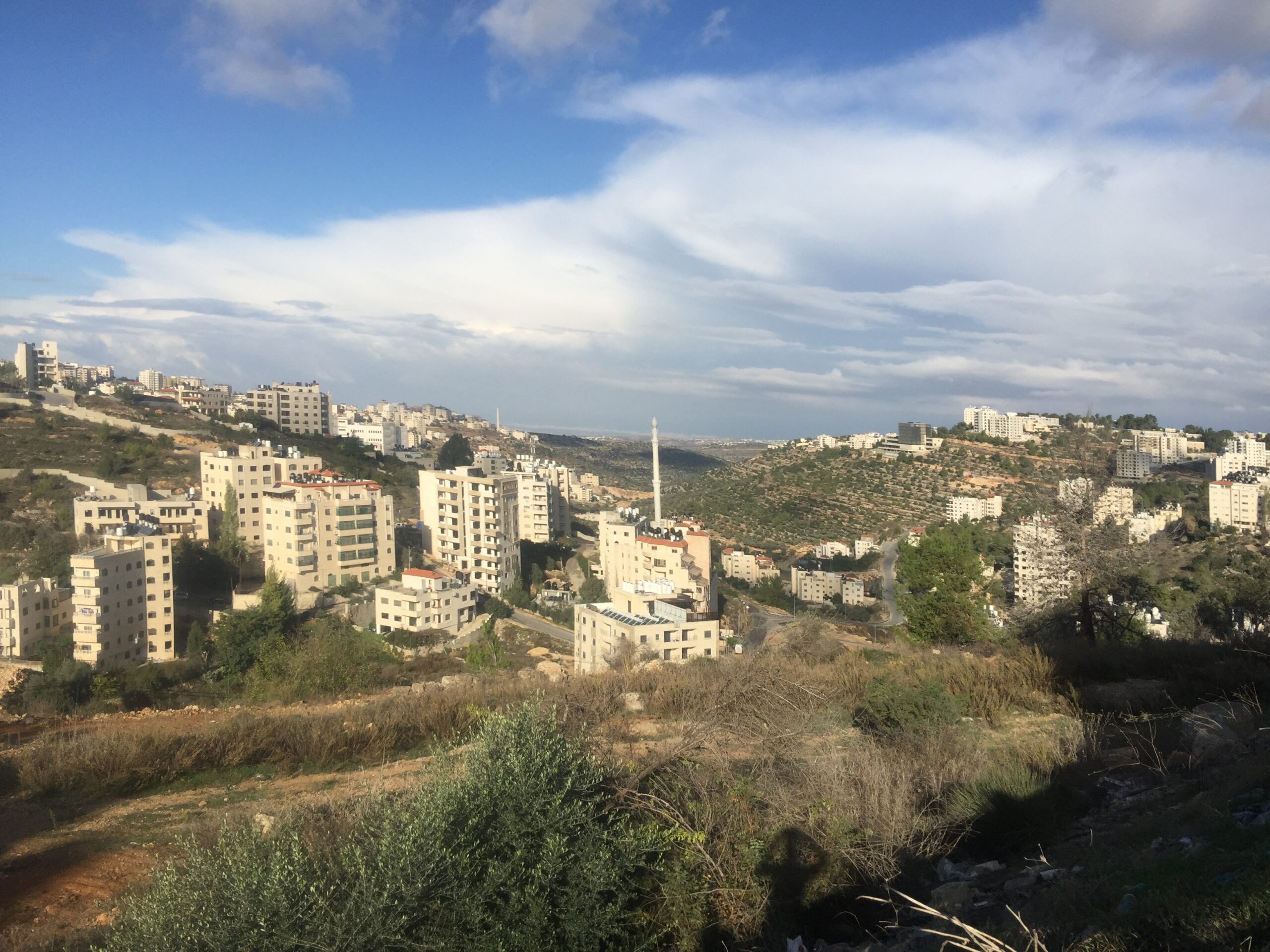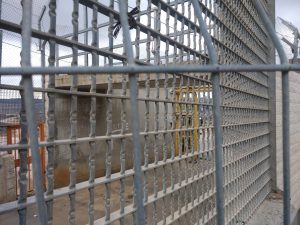I wrote another letter asking for the travel permit, because it was my turn to make a move in this sadistic game of occupation bureaucracy.
Waiting
“When are you traveling?” asked my friend Sawsan. She knew about our plans to travel to the United States, for my partner, Osama, to take a sabbatical year.
“Our flight is in three weeks, but we haven’t yet gotten the permit for Osama to leave,” I answered. It was Friday, the second weekend of the renewed curfew in the West Bank. The coronavirus test positivity rates in the West Bank are about 30%. We anticipate a third general lockdown, but the Palestinian Authority is afraid of public opposition. People in the West Bank don’t receive compensation or unemployment benefits when things shut down. Sawsan lives nearby, in an area that doesn’t require her to cross police checkpoints, and we allow ourselves to continue to meet with her family.
“But you already paid for the apartment there and the plane tickets,” she said. “What will you do if you don’t get the permit?”
We were standing in the kitchen. I added vinegar to the pot of hot milk on the stove, to make ricotta cheese. Sawsan’s two kids and my two kids sat on the living room floor, creating huge constructions out of lego pieces, wood blocks and building sticks. They worked quietly and seriously.
“We don’t have a choice,” I told her. “We’ll know only at the last minute if they’ll give us the permit.”
Bureaucracy Designed to Fail
“I write to request an exit permit via Ben Gurion Airport for a Palestinian resident,” I wrote to the public inquiries officer at the Civil Administration, the branch of the Israeli military that administers the occupation of the West Bank. Over the course of 15 pages, including attachments, I explained our humanitarian circumstances. I tried to anticipate the reasons the military authorities would cite to deny the request and to respond to them in advance: Palestinian residents are not permitted to submit requests directly to the military. The request is not sufficiently humanitarian. The request was submitted too late. The request was submitted too early. Allowing Osama to enter Israel would endanger the lives of Israeli citizens.
The Israeli authorities don’t allow the Palestinian Authority to operate an airport in the West Bank and as a rule also don’t allow Palestinians to travel abroad via Ben Gurion Airport. Jordan, which used to control the West Bank, ordinarily allows West Bank residents to travel abroad through its airport, but that option has been restricted since the outbreak of the pandemic, and even more so for people like Osama, who was born in Gaza and therefore needs a special Jordanian visa. Our only hope is a special, exceptional permit for Osama to travel via the Israeli airport, a permit that is unattainable unless you have an exceptional humanitarian justification and either connections or an Israeli lawyer. Luckily for him, Osama is married to an Israeli lawyer.
Every day, I called the female soldiers working at the public inquiries department of the Civil Administration.
“The request is being processed.”
“Our response time is 45 days.”
“What do you expect me to do?”
In the meantime, we continued our endless preparations for relocating to the U.S. We advertised our apartment for rent. We registered Forat for public school and Adam for a private preschool in the United States. We cleaned the apartment. In the morning, when Forat refused to dress for school, I lost patience and screamed at her. Osama intervened, and I apologized to Forat, who had thrown herself on her bed, sobbing.
“What are we doing wrong, that our lives are always full of stress?” Osama asked me.
“I’m not sure it’s all our fault,” I said, although yelling at Forat was definitely my fault.
Two weeks after I submitted the request, I got a response from an officer holding the rank of first lieutenant: The Civil Administration refuses to consider the request, because it was not submitted via the Palestinian Authority.
Although I expected that response, my stomach dropped with anxiety. I immediately drafted a second letter, because it was my turn to make a move in this sadistic game of occupation bureaucracy. I referred the first lieutenant to the affidavit we had submitted, signed by Osama, detailing his attempts to submit the request via the Palestinian Authority and the response of the Palestinian clerks: The Israeli authorities do not allow the Palestinian Authority to submit requests to travel via the airport. I sent Osama to the Palestinian Authority office a second time, and when he returned empty-handed, I certified a second affidavit in his name, that repeated what we had written in the first affidavit. I set a deadline for the officer’s substantive response, after which, I threatened, we would petition the District Court. I called Debby-the-soldier to confirm receipt of the letter and the affidavit. Then I sat on the floor and burst into tears.
“I’m sorry,” I told Osama, after he picked me up and hugged me. I realized my stress was stressing him out. “There’s an excellent chance they will ultimately approve the request, really. We expected them to do what they’re doing now. It’s all going according to plan.”
“Then …” He meant to ask why I was crying.
“I hate this game. I don’t like playing it when I’m representing clients, and I don’t want to play it when the course of our lives depends on the outcome. Even for the few types of requests they would ultimately grant – the first, second and third answer is always ‘no’, because they know that most people will give up.”
The phone rang. A woman who had wanted to see our apartment arrived. My bra, which Adam had found that morning and had waved like a flag, shouting, “milk!”, his association with my breasts, was strewn on the floor next to the kitchen table. I picked it up, together with other things from the floor and shoved everything into a drawer. I opened the door.
“Yes,” I told the prospective tenant, “the apartment will be available in two weeks.”
This post was also published at haaretz.com on December 16, 2020:
https://www.haaretz.com/israel-news/living-in-the-west-bank-and-in-limbo-1.9372254



